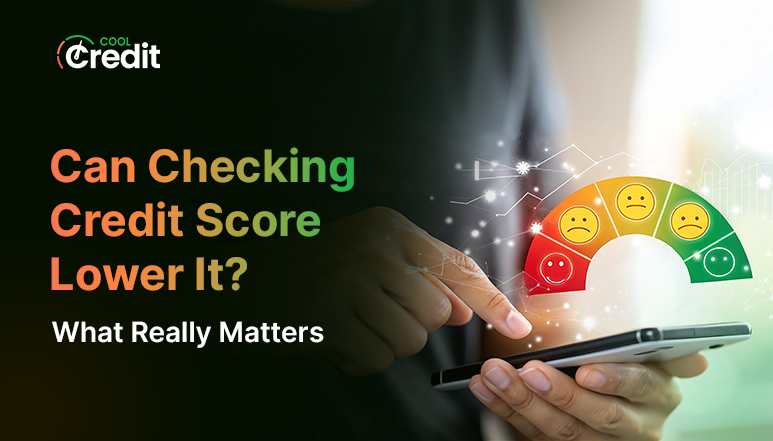
Credit Score to Buy a House: How to Qualify & Save Money
Not every home loan needs the same credit score. Your score decides how easy or hard it is to qualify, but it doesn’t have to be perfect to buy a house. Some loans are strict and ask for a stronger credit score to buy a house, while others give you more room if your score is lower.
Lenders always check your history because it shows them how much risk you bring. And if you understand how each loan works, you can prepare better and improve your chances. With the right plan, you not only qualify but also save money in the long run. That is why your credit score matters when you start thinking about buying a house.
Backed by Experts, Powered by AI Your Ultimate Credit Repair Stop
Sign Up NowWhat Credit Score Is Needed to Buy a House?
Credit score requirements change with the type of loan and the lender’s rules. Here’s a quick look at the minimum scores you should know.
| Loan Type | Minimum Score Needed | What You Should Know |
| Conventional | 620 | Lenders use your middle score. Needs stronger credit since no government backing. |
| FHA | 500 / 580 (Depends on your down payment) | Easier to qualify. Lenders may still ask for 620. |
| VA | No official minimum / Most lenders want 620 | Only for veterans, service members, and spouses. No down payment needed. |
| USDA | 640 (most lenders) | For rural or suburban homes. Lower scores reviewed manually. |
| Jumbo | 700 | For homes above standard limits. Needs higher income and bigger down payment. |
How Different Home Loans Work?
▪ Conventional Loan
Conventional loans come from private lenders like banks and credit unions. They don’t have government backing, so lenders carry more risk. That is why you need stronger credit and a steady income to qualify.
Conventional loans can be conforming or non-conforming. Conforming loans follow the rules set by Fannie Mae and Freddie Mac. Non-conforming loans don’t follow those rules, and lenders see them as riskier.
▪ FHA Loan
FHA loans are backed by the Federal Housing Administration. This means lenders are protected if you stop paying your mortgage. That protection makes them more willing to approve buyers with lower credit.
You can also qualify with a smaller down payment compared to conventional loans. But you have to pay mortgage insurance, which increases your monthly cost. FHA loans are often chosen by first-time buyers with limited savings.
▪ VA Loan
VA loans are backed by the Department of Veterans Affairs. They are available to veterans, service members, and surviving spouses. The VA guarantees a part of your loan if you can’t repay.
This lowers the risk for lenders and makes approval easier. You don’t need a down payment, and there is no mortgage insurance. VA loans remain one of the most affordable options if you qualify.
▪ USDA Loan
USDA loans are backed by the U.S. Department of Agriculture. They are designed for homes in rural and some suburban areas. The USDA guarantee gives lenders more security, which makes approval easier.
You may not need a down payment at all. The home must be your main residence to qualify. And there are income limits based on the area where you buy.
▪ Jumbo Loan
Jumbo loans are for homes that go beyond standard lending limits. They don’t meet Fannie Mae or Freddie Mac guidelines, so lenders face higher risk. That is why jumbo loans need a higher credit score and stronger income proof.
You also need a bigger down payment compared to other loan types. Jumbo loans are common in expensive housing markets where property values are much higher.
How to Buy a House With a Low Credit Score?
Not everyone has a perfect credit score. But that doesn’t mean you can’t buy a home. You just need the right plan and a few smart choices.
1. Talk to More Than One Lender
Lenders don’t follow the same rules. Some are stricter, while others give you space. You should compare rates and check who is ready to work with you. And be prepared to explain your income, savings, and stability. A steady job and a bigger down payment can make your case much stronger.
2. Check If FHA Works for You
FHA loans are designed for people with lower credit scores. You may qualify if you have a steady income and at least 10% down. These loans also come with mortgage insurance, which raises your monthly cost. But if you keep paying on time for 11 years, it can be removed.
3. Keep Refinancing in Mind
With a lower score, you may face a higher interest rate. That’s normal in the beginning. And it doesn’t have to be permanent. When your credit improves, you can refinance for a lower rate. This helps reduce your payment, though it also restarts the loan term.
4. Use a Co-signer If Needed
If qualifying alone is hard, you can add a co-signer. They agree to share the responsibility if you miss payments. But this is a big step, as their credit is also at risk. You should use this option only when other paths don’t work.
5. Work on Your Credit Side by Side
Buying with lower credit is possible, but keep improving on the side. Pay your bills on time, cut down debt, and avoid new mistakes. And as your score grows, you’ll have more choices and better deals.
Increase Your Credit Score to Buy a House
A low credit score makes borrowing harder. But you can change that. Small actions today can improve your score before you apply for a loan.
▪ Paying Bills on Time Matters
Your payment history has the biggest role in your credit score. It makes up 35% of your FICO® Score. And paying on time always helps. Missed payments hurt, but their impact fades as time passes. If you stay consistent, old late marks lose power, and your score recovers. You can also use secured cards or builder loans to prove reliability.
▪ High Credit Card Balances Hurt You
Credit cards are useful, but high balances lower your score. Your utilization ratio counts for 30% of your FICO® Score. It shows how much of your available credit you use.
Lower is better. And staying under 30% gives a strong advantage. Focus on paying off cards with high balances first for a faster boost.
▪ Other Credit Factors Count Too
Your score also depends on history length, credit mix, and new accounts. Older accounts improve your profile because they raise the average age. If you don’t have them, being an authorized user can help.
Mixing credit types also works in your favor. And variety shows responsibility. But opening too many accounts at once can hurt. Every application adds a hard check that slightly lowers your score.
▪ Credit Reports Can Have Errors
Errors on credit reports can harm your score unfairly. You can get free reports yearly from Experian, Equifax, and TransUnion. The only official site to request them is AnnualCreditReport.com.
Check each report carefully and watch for wrong accounts or late payments. If you find errors, dispute them with the bureau directly. And once they’re corrected, your score can bounce back quickly.
▪ Be Careful Before Applying for a Mortgage
Don’t close old credit cards even if you rarely use them. Closing them shortens your history and increases utilization. Avoid opening new loans right before a mortgage as well. Lenders like stability.
And fewer recent changes make you look more reliable. Pay every bill on time in the months leading up to your loan. Small, consistent steps can help you qualify for better interest rates.
Smarter Insights. Real Results. Stronger Credit.
Fix NowWhat Else to Consider Before You Buy a House
Buying a home is more than just paying the loan. You should know what truly comes with this big decision.
✔ Your Budget Is More Than Just the Loan
You need to know how much you can really spend each month. It’s not just the loan. You add interest, taxes, and insurance too. And sometimes mortgage insurance is part of the payment. Lenders prefer costs to stay within 25% to 28% of your income.
✔ Emergency Costs Are Always Your Responsibility
Owning a house means handling repairs and regular maintenance on your own. These expenses show up without warning and can be heavy at times. That’s why it’s wise to keep three to six months of savings. And this safety net helps you when unexpected repairs demand quick money.
✔ The Market Decides More Than You Think
Don’t rush into buying without checking your local housing market first. Prices move up and down, and timing makes a big difference. A trusted real estate agent can guide you with clear market insights. And their advice helps you decide if now is the right time.
✔ Buying Only Works If You Stay Long Enough
Buying a home isn’t just the down payment you make. There are closing costs, taxes, and even moving charges to handle. So selling too soon often means you lose more than you gain. It’s better if you plan to stay at least five years.
✔ Financial Advice Saves You From Big Mistakes
A house is one of the biggest financial decisions you’ll make. Getting advice before applying for a loan will help you prepare better. A financial expert can guide you with budget, credit, and mortgage options. And that advice helps you avoid mistakes that could cause stress later.
✔ Lifestyle Matters as Much as the Property
A house is also about the life you want to live. Look at schools, hospitals, markets, and transport in the area you choose. And make sure your daily routine feels easier, not more stressful there.
✔ The Future Will Change Your Needs
Your needs today might not be the same a few years later. So think about family, career, or even the space you may need. Check if property values in that area are moving up or down. And planning ahead keeps your home a good investment in the long run.
Build a Good Credit Score to Buy a House With CoolCredit
When you apply for a mortgage, your credit score is one of the biggest factors lenders look at. It influences whether you qualify for a loan. And what interest rate you’ll pay. A higher score usually means lower monthly payments and big savings over time.
How CoolCredit Helps You Improve
CoolCredit is designed to make improving your credit score easier and more effective:
- Stay Alert to Changes
Get instant notifications when something on your report shifts—so you’re never caught off guard during the loan process.
- Spot and Fix Errors
Credit report mistakes can hold you back. CoolCredit highlights errors and creates dispute letters, helping you correct them quickly.
- Boost Positive History
Building new, reliable credit matters as much as fixing old problems. With AI-powered tips, CoolCredit shows you the fastest ways to grow your score.
- Booster Payment Plan
Report your on-time payments to credit bureaus and strengthen your history—something lenders look for in mortgage approvals.
- Expert Assist
For tougher challenges, CoolCredit connects you with credit specialists who give proven strategies to raise your score and prepare you for a mortgage.
Why This Matters
Buying a house is one of the biggest financial decisions you’ll make. With the right credit score, you can secure better rates, smaller payments, and long-term savings. CoolCredit gives you the tools to not only get approved but also to set yourself up for lasting financial health.
Conclusion
Buying a home is a big decision, and your credit score makes a difference. A strong score gives you better loan options and lower costs. But even if your score is low, you can still improve it.
CoolCredit helps you track changes, fix errors, and build a positive history. With the right steps, you can qualify with confidence and save money when you finally buy your house.
FAQs
Q: Can I Buy a House With a 580 Credit Score?
A: Yes, you can with an FHA loan. But you may need a higher down payment.
Q: Do all Lenders Follow the Same Credit Score Rules?
A: No, lenders have their own limits. That’s why comparing different lenders always helps.
Q: Will a Low Score Always Mean Higher Interest Rates?
A: Usually yes, since lenders see more risk. But you can refinance later if your score improves.
Q: Can I Get a Mortgage Without a Down Payment?
A: Yes, VA and USDA loans allow it. But you must meet their eligibility rules.
Q: What Is a Good Credit Score to Buy a House?
A: A score of 620 is good enough for most conventional loans. But higher scores get you better interest rates and save money in the long run.







